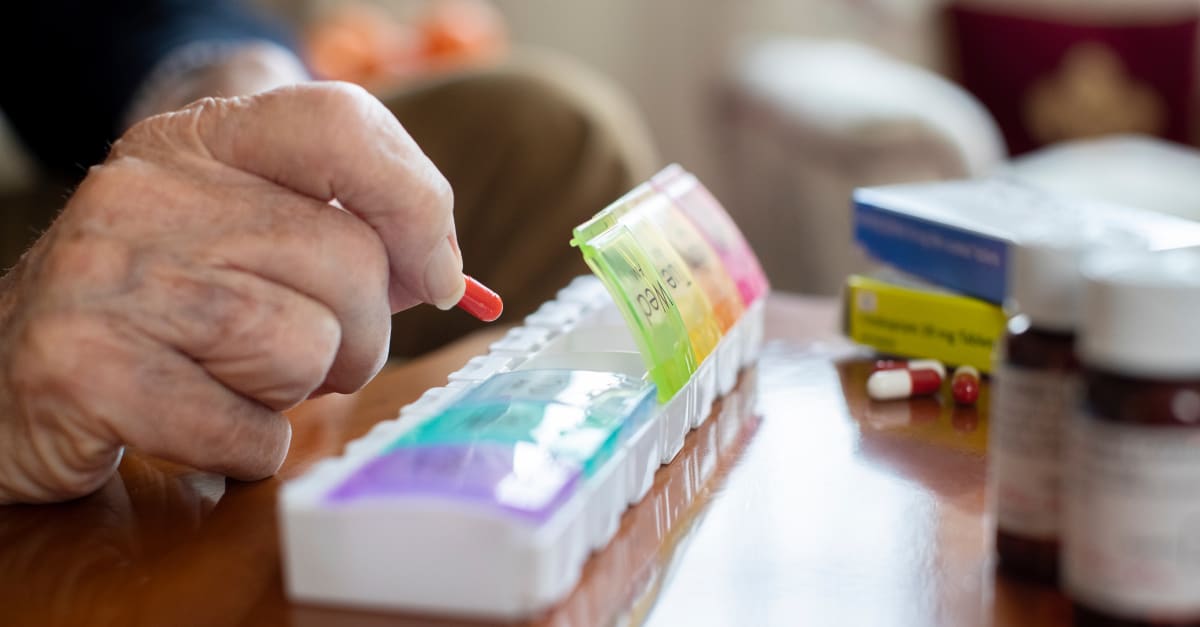At UNO Amsterdam, researchers and healthcare professionals connect scientific knowledge with the daily practice of 22 affiliated healthcare organizations. Laura van Pol has worked there for more than ten years and is an epidemiologist in the field of infectious diseases and antibiotics in geriatric care. Her motivation is to change practice and improve care. That’s why she finds the combination of science and practice valuable: “Collaborating with healthcare professionals is actually indispensable.” Because that’s how you discover what questions are being asked, how professionals experience things in practice, and how you can best implement cognitive interventions.
Antibiotic use among the elderly
As a PhD candidate, she has been researching antibiotic prescribing in nursing homes since 2011. She showed that a third of residents with suspected urinary tract infections were prescribed antibiotics unnecessarily. Changes in behaviour or “vague” complaints often lead to a urine stick test, which shows bacteria but not necessarily a urinary tract infection. The use of antibiotics can lead to resistance, says Laura van Pol. The World Health Organization also warns that antibiotic resistance is a global and growing problem. We risk no longer being able to treat pneumonia with antibiotics or perform certain operations, for example.
In addition to resistance, unnecessary antibiotic treatment in (elderly) care is a problem because there is a risk of unnecessary side effects, interactions with other medications, and there is a risk of undertreatment. “Urine tests are regularly performed on older people whose behavior has changed, and if the result is positive, a urinary tract infection is concluded. But this changed behavior can have another cause, such as side effects of medications, dehydration, or the person simply not getting through the day.
Tips for researchers who want to better communicate with practice
- Engage practitioners before you start your research: Ask questions and test whether your research questions are feasible.
- Check if there is a need for the knowledge you have developed, and in what form.
- Don’t leave advanced knowledge on the bookshelf! Make sure it ends up in practice. You can do this yourself, but you can also look for parties you can contact about your findings, for example an interest group.
Amazing results
From UNO Amsterdam, Laura van Pol, in collaboration with healthcare professionals and the professional association Verenso, sought new insights into urinary tract infections, the most common infectious diseases among older people. The most important question was: how can UTIs be correctly diagnosed in this target group? This led, among other things, to the Verenso guidelines and the development and evaluation of practice support materials, such as an information poster, a training video, a pocket card, a patient letter and an observation checklist. ‘As researchers, we never thought about creating an observation checklist, because you always hear that there are already so many checklists in healthcare. But there is still a need for it. So the collaboration produces amazing things and a beautiful presentation of knowledge products.’
The researcher speaks enthusiastically about focus group meetings, interviews and assessments with people in the field. “It helps to indicate beforehand that you want to learn from them and that different opinions are valued. This creates a safe environment. I personally found the session exciting as it showed that healthcare professionals often do not work according to guidelines. Would that be okay? However, there was no resistance, just positive feedback and an intention to share ideas with colleagues the following day.
Implementation of knowledge products
UNO Amsterdam currently has 22 affiliated elderly care organisations. This ensures an accessible connection between researchers and practitioners, allowing new knowledge to be disseminated through online knowledge meetings and thematic groups, among other things. “Many studies capture the imagination of healthcare professionals, because they can do something with them right away,” is Laura van Pol’s experience. However, the step from knowledge to implementation is a challenge.
“For me as a researcher, the important lesson is that implementation takes time and my responsibility extends to the front door of the healthcare organization. I try to provide organizations with as many tools as I can, but ultimately they are the ones who can do something with them. How can I open the front door a little further? Within UNO, this is facilitated by an implementation consultant, a communications consultant, and an education consultant. They provide support in translating knowledge into practice and also provide structured activities to share knowledge and support organizations in implementation.
Finally, she advises healthcare organizations: “First do a good inventory of the problem in your organization and see what you need.” We now have a lot of knowledge products within UNO, but look carefully at where the problem is and what works for you.’
Tips from Laura van Buul for healthcare professionals looking to start their research
- Work! As a healthcare professional, you have a lot of knowledge and relevant questions.
- I realize your question may come as a surprise to this practice.
- Use your experience to improve something for your customers.
- Seek support within your institutions, for example through a scientific committee or science practitioner.

“Total coffee specialist. Hardcore reader. Incurable music scholar. Web guru. Freelance troublemaker. Problem solver. Travel trailblazer.”







More Stories
GALA lacks a chapter on e-health
Weird beer can taste really good.
Planets contain much more water than previously thought